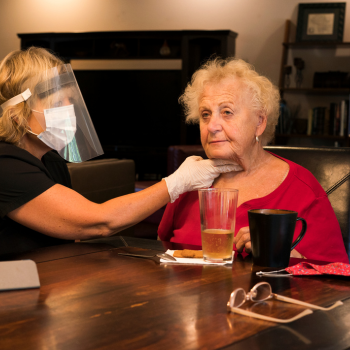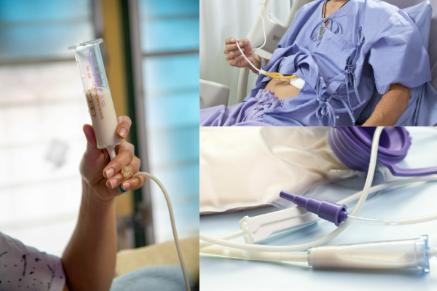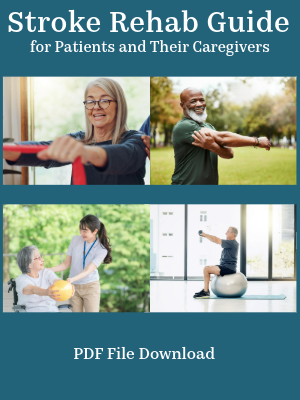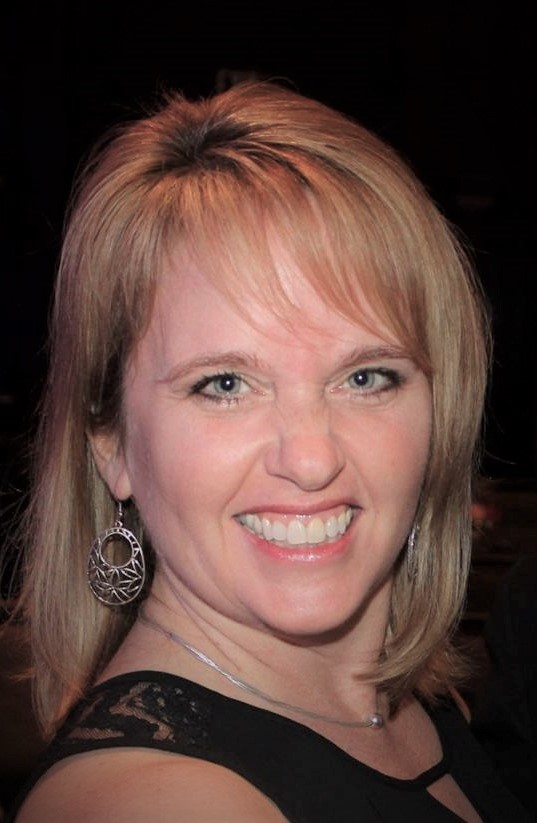Dysphagia and Difficulty Swallowing
Medically reviewed by Karen Murray, OT, CHT, CSRS - written by Stroke-rehab.com

Dysphagia and difficulty swallowing may occur in up to 65% of stroke patients according to Stroke Connection Magazine. Dysphagia is a disorder characterized by weak mouth, cheek and swallowing musculature making it difficult to move food around in the mouth and/or impairing the swallowing response. Swallowing difficulties can be extremely serious because food or drink may enter the lungs which can lead to aspiration pneumonia. Aspiration pneumonia can be fatal. According to varied sources, between 15-31% of all stroke-related deaths are due to aspiration pneumonia.
How Stroke Can Effect the Muscles Involved in Swallowing
The swallowing process involves a complex interplay of muscles. When a stroke damages these muscles, it can lead to dysphagia. Here are some of the key muscle groups that may be affected:
Oral muscles: These muscles help move food around in the mouth and prepare it for swallowing. They include:
- Tongue: The tongue is responsible for moving food around, forming a bolus (a small, rounded mass of food or liquid that is formed in the mouth), and initiating swallowing.
- Cheek muscles: These muscles help keep food between the teeth and prevent it from falling out.
- Lip muscles: The lips help seal the mouth during swallowing.
Pharyngeal muscles: These muscles are located in the throat and help propel the bolus down the esophagus. They include:
- Upper pharyngeal constrictors: These muscles help close off the nasal passages and prevent food or liquid from entering the nose.
- Middle and lower pharyngeal constrictors: These muscles contract to push the bolus down the esophagus (the tube that connects the throat to the stomach).
- Cricopharyngeal muscle: This muscle relaxes to allow the bolus to pass through the cricopharyngeal sphincter, which separates the pharynx located at the back of the throat from the esophagus.
Esophageal muscles: These muscles help move the bolus down the esophagus to the stomach via rhythmic contractions called peristalsis.
If any of these muscles are weakened or damaged due to a stroke, it can disrupt the swallowing process and lead to dysphagia.
Symptoms of Dysphagia and Swallowing Difficulty
Symptoms of swallowing impairment can include:
- Food falling out of mouth
- Difficulty getting food down
- Coughing while swallowing
- Choking while swallowing
- Food pocketed on one side of mouth without being swallowed
- Weight loss
- Weak voice.
Sometimes the patient will exhibit no outward symptoms. A test called the modified barium swallow can identify if a patient does indeed have swallowing problems. All stroke patients should be screened by a speech language pathologist (SLP)for swallowing difficulties before being given food and drink. To locate a SLP (also known as a speech therapist), visit https://www.asha.org/profind/.
Treatment for Dysphagia and Difficulty Swallowing
Treatment for dysphagia may include dietary changes and swallowing therapy. Food and liquid consistencies can be changed to allow for easier swallowing. A physician may order a mechanical soft or pureed diet. Liquid can be thickened to pudding, honey, or nectar consistencies to help prevent aspiration of liquid into the lungs. Swallowing therapy may consist of proper positioning and techniques to reduce the chance of aspiration. Some commonly used strategies are described below, but one should consult with a SLP (speech therapist) to determine what techniques should be used as some strategies may be helpful to one patient but detrimental to another:
- Upright posture: Sitting upright at a 90-degree angle helps prevent food or liquid from pooling in the back of the throat and reduces the risk of aspiration.
- Chin tuck: Gently tucking the chin in may help close off the airway and prevent food or liquid from entering the lungs.
- Head tilt: Tilting the head slightly to the affected side can sometimes help with swallowing.
- Small bites: Take small bites of food and chew thoroughly before swallowing.
- Avoid distractions: Minimize distractions during meals to focus on swallowing.
- Multiple swallows: Take multiple swallows for each bite of food or sip of liquid.
- Alternate foods and liquids: Alternating between solid and liquid foods.
- Avoid straws: Straws can increase the risk of aspiration, so it's best to avoid them.
If swallowing is severely impaired, a stroke patient may need to have a temporary (or even permanent) feeding tube placed. There are two types of feeding tubes. A nasogastric tube is passed down the nose to the stomach and is often only used temporarily. A PEG tube (percutaneous epigastric tube) is surgically implanted into the stomach and can be used for longer amounts of time.

Individuals with dysphagia and difficulty swallowing after stroke should have their swallowing function evaluated to prevent aspiration which can lead to pneumonia and even death. Stroke patients can improve their swallowing function and reduce the risk of complications by following guidelines set up by their physician, SLP and dietician. It's important to work closely with these healthcare professionals to develop a personalized plan that meets your specific needs.
Sign Up For Our Newsletter

Newsletter Sign Up
Receive Stroke Recovery Tips, our online quarterly newsletter. Sign up below for free tips on exercises, resources, latest technology, apps, research and more!
To view past issues of Stroke Recovery Tips, visit https://www.stroke-rehab.com/Stroke-Recovery-Tips-BackIssues.html
Get Our Stroke Rehab Guide

Our comprehensive stroke rehab guide in pdf format is designed for both patients and caregivers who want clear, practical ways to support recovery, improve daily function, and regain independence at home. It includes
- Rehab exercises with pictures for safe home practice
- Physical, occupational, and speech therapy guidance
- Tips for daily activities and adaptive equipment
- Answers to common questions from patient and caregivers
- Information on stroke causes, treatment, and prevention

About the Author
Karen Murray, MOT, CHT, CSRS, is a licensed occupational therapist, Certified Stroke Rehabilitation Specialist, Certified Hand Therapist, and Certified Personal Trainer with over 29 years of experience working with stroke survivors in hospital, outpatient, and home settings. She created Stroke-Rehab.com to help patients and caregivers better understand recovery and regain independence at home.
Medical Disclaimer: All information on this website is for informational purposes only. This website does not provide medical advice or treatment. Always seek the advice of your physician or other healthcare provider before undertaking a new healthcare or exercise regimen. Never disregard professional medical advice or delay seeking medical treatment because of something you have read on this website. See the disclaimer page for full information.










